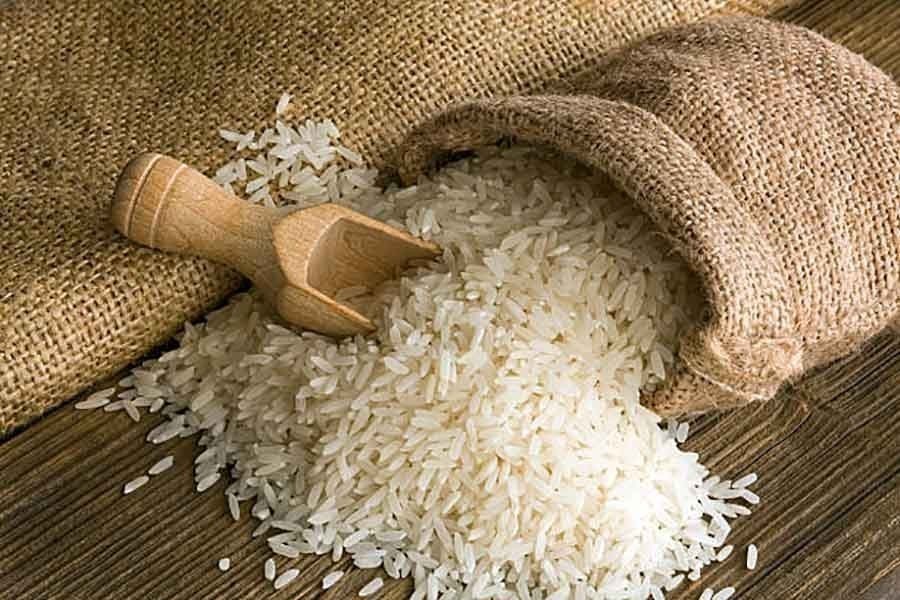The government's decision to reduce duty on rice import could hurt Aman farmers during the harvesting time, said insiders.
They put emphasis on higher procurement from domestic sources as well as limited import through government channel.
The food ministry on Tuesday revealed that it would reduce rice import duty from the last week of this month.
The current duty on rice import is now nearly 65 per cent.
The decision came as millers were not providing rice to government warehouses at fixed rate of Tk 35-36 a kg.
Food secretary Dr Mosammat Nazmanara Khanum, said a decision has been taken to deduct rice import duty to bring rice from external sources.
But we will observe the condition until the last week of July whether government warehouses are getting rice from millers or not, she said.
However, the Food Directorate (DGoF) have procured 0.34 million tonnes of the staple till July 5.
The target is 19.5 million tonnes by August 31, according to the procurement division of the DGoF.
The government has a 0.9 million tonnes of rice storage now which was 1.37 million tonnes in the corresponding period of last year.
However, rice prices are static for last one week but it has increased by Tk 2.0-3.0 a kg in a month.
Coarse rice was selling at Tk 42-45, medium quality at Tk 48-54 and finer variety at Tk 55-65 a kg, according to the state run Trading Corporation of Bangladesh.
The current price of coarse rice is 16-18 per cent higher now than that of last year, TCB records showed.
Agri economist and a value chain expert Prof Golam Hafeez Kennedy, said farmers got some profits this Boro season after long two years.
He said seasonal Brridhan-28 variety of paddy started selling at Tk 750-780 a maund which is now minimum Tk 920 a maund.
He said despite having all odds and natural calamities, farmers are now busy for Aman farming after getting handsome prices in Boro.
The government should now provide all logical supports and incentives to farmers to maintain a sound production of rice in this Aman season, he said.
He said any kind of opening of market for imported rice could discourage farmers in Aman cultivation.
He said if imports start incessantly from August prices of the staple could drop severely during the Aman harvesting season from November to January.
He said easy import could affect government's ambitious target of 15.6 million tonnes of rice production in Aman season.
Import could only be permitted for now if production drops in Boro season, he said.
But government is demanding that Boro production was above 20.0 million tonnes, he said.
Prof Abdul Hameed, chairman of Agrarian Research Foundation, Bangladesh (ARF), told the FE that withdrawal of import duty hardly could help the government getting rice at cheaper rates.
He said global rice prices (parboiled) are now hovering between $380-475 a tonne which is 18-20 per cent higher than a year ago.
He said Indian Swarna-5 or Guti Swarna varieties will cost minimum Tk 36-Tk 37 a kg if the existing 65 per cent duty on rice import is withdrawn.
The price is higher than the current mill-gate prices in Bangladesh, he said.
So, sourcing from the global sources is now not a good solution, he said.
"Rather it could give the millers opportunity to reduce prices of paddy drastically during harvesting season", he said.
He said the government should develop a 5.0 million tonnes of strategic foodgrain bank following the pandemic to tackle any odd condition.
Paddy should be purchased from farmers and should be preserved at their home if government warehouses have shortage of storage, he said.
"And in that way, there will be no problem of high moisture on paddy", he said.
Bangladesh Auto Major Husking Mill Owners Association secretary K M Layek Ali, said prices of paddy have surged notably in last one and half months as many rich farmers and seasonal traders are stockpiling paddy for more benefits.
He said they will be forced to release the produce with beginning of Aus harvest next month which could help easing prices of rice.
He said government should now import rice only through government channel for the betterment of farmers.
Rice import was almost zero in the just ended financial year (FY'20) which was 0.41 million tonnes in FY'19.
The country imports all time high 4.0 million tonnes of rice in FY'18, mostly from India, according to the food ministry


